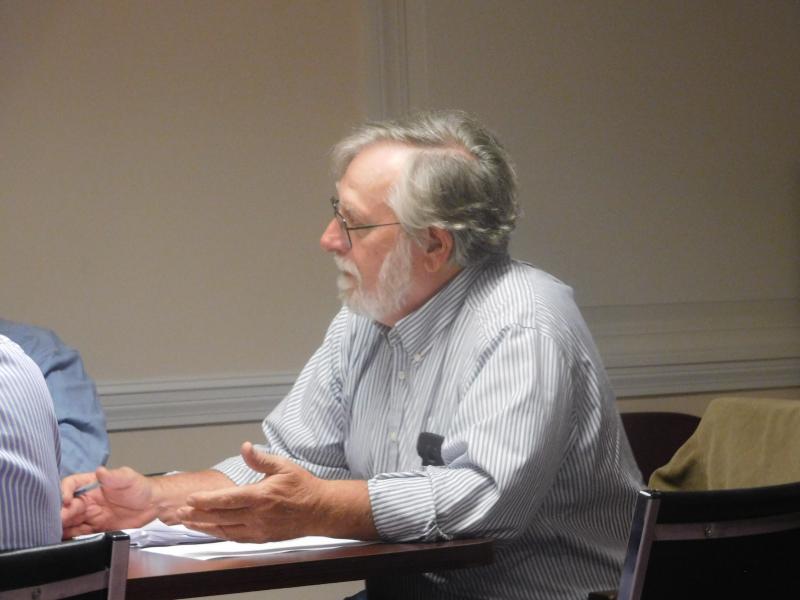After director’s departure, waste district works on accountability
CARVER — When it comes to accountability they’ve come a long way, said members of the Carver Marion Wareham Regional Refuse Disposal District committee. But there’s still a lot to be done to match how the district says it runs with how it actually runs.
On Sept. 18 the district made plans to consult its attorney, have a financial analyst organize documents, and form a finance committee to increase transparency, but made most of those decisions only after much debate.
The district was formed in 1973 to allow Wareham, Carver and Marion to negotiate jointly and dispose of waste with Covanta SEMASS. The District’s former Executive Director, Ray Pickles, who was fired in January 2017 and is currently facing civil and criminal charges for taking money from the refuse district.
One committee member said that in the past the District had very few meetings, many of those without the required number of members, and kept no minutes. Now it meets regularly, has nine members and is very transparent about its numbers.
District committee members voted at last month’s meeting to raise sticker fees for all three towns to $125 next year, which will cover operating costs for the district’s two transfer stations in Marion and Rochester.
However, a committee member took issue with the fee because he feels the district is not authorized to charge it.
“I can’t find any way that we can actually set a fee and say to towns, ‘collect this for us,’” Joe Benedict said.
Wareham’s Director of Municipal Maintenance, Dave Menard, pointed out that the district is rapidly moving away from its charter, as the end of its agreement with Covanta is set for 2020. He said that the committee is charging fees because it is “looking at a future with Covanta not paying anymore.”
However, fellow Wareham member and Selectman Jim Munise disagreed.
“I don’t think we can just operate in a void and do what we want. If we want to change this, you have to go through a process to change it,” Munise said.
Other committee members also pointed out other ways in which the group does not honor its own charter.
The problem is that the charter that the group originally wrote “doesn’t reflect how we operate,” Benedict said.
Carver Town Administrator Michael Milanowski said that the pattern of not following the charter closely started when “an individual that was running the board said the committee didn’t matter,” referring to Pickles.
Marion Selectman John Waterman, who does not serve on the committee but attended the meeting, suggested making changes to the charter based on the advice of an attorney.
The District’s current Executive Director, Jeffrey Osuch, thought the committee members brought up valid points, and also thought the committee should bring in an attorney to figure out how to bring the district into compliance with its charter.
Milanowski laid out three possibilities for the District going forward. They can work with an attorney to draft a new agreement and stick to it. One town could decide to leave the group, or a majority of the committee could decide (after consulting with their towns) to dissolve the District.
Munise also proposed a finance subcommittee for the group, because he was concerned that that the three person subcommittee that the board currently has makes all of the decisions for the group.
Benedict disagreed and said, “I don’t agree with subcommittees because they are not open.”
Other committee members pointed out that the group is more of an advisory group than a subcommittee, does not make any decisions, shares the results of meetings with the full committee and primarily serves as a way for a part-time director to continue dialogue with (some of) the committee between meetings.
In the end, the committee established a finance subcommittee with Munise, Marion Selectman Norm Hills, who serves as the District’s treasurer, and a Carver representative.
The district has been working to get an audit of the district’s finances since Pickles left them in disarray.
Osuch told committee members that he spoke with a financial analyst who could not commit to a full audit, but can at least organize the Waste District’s six accounts so they will be able to do audits in the future. Committee members authorized him to enter a contract with the analyst.
More organized accounts should give the new finance committee something to work on in preparing next year’s budget, but it is still not clear when the analyst would be able to complete those numbers.















